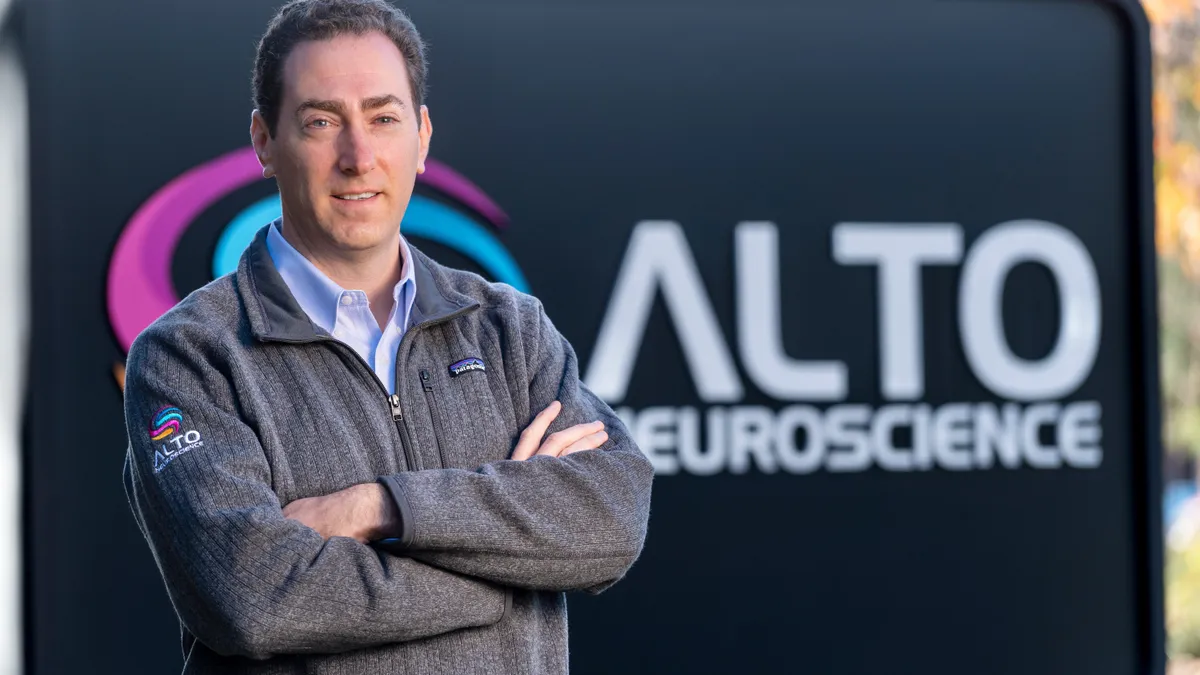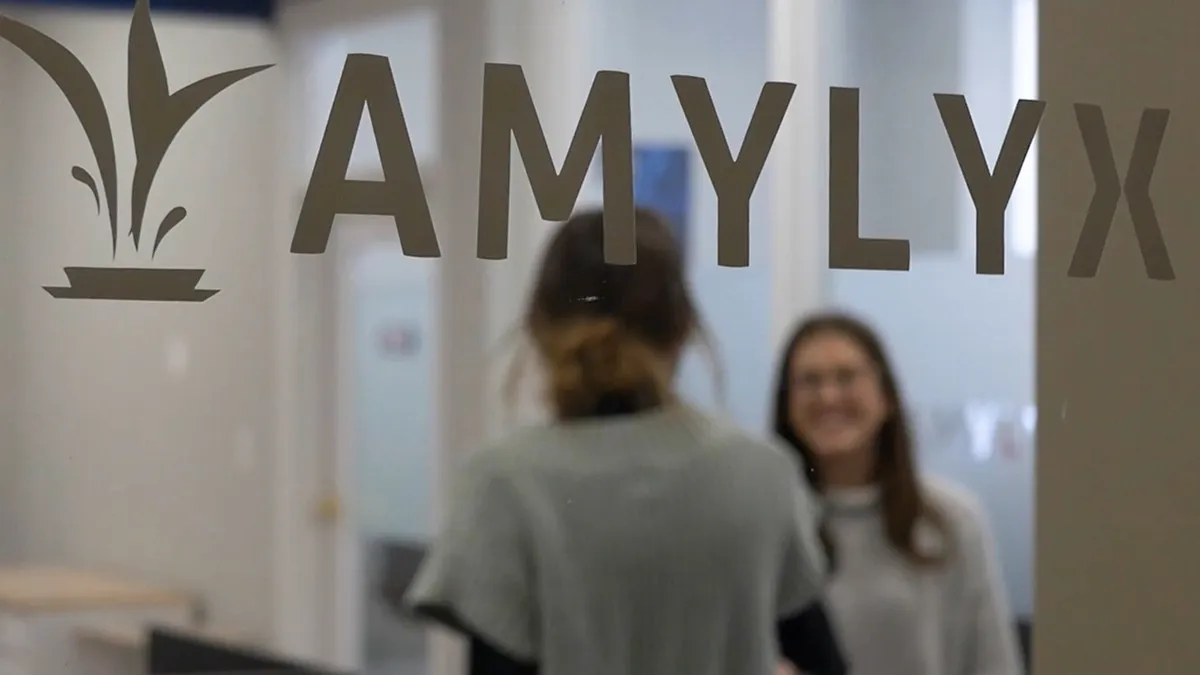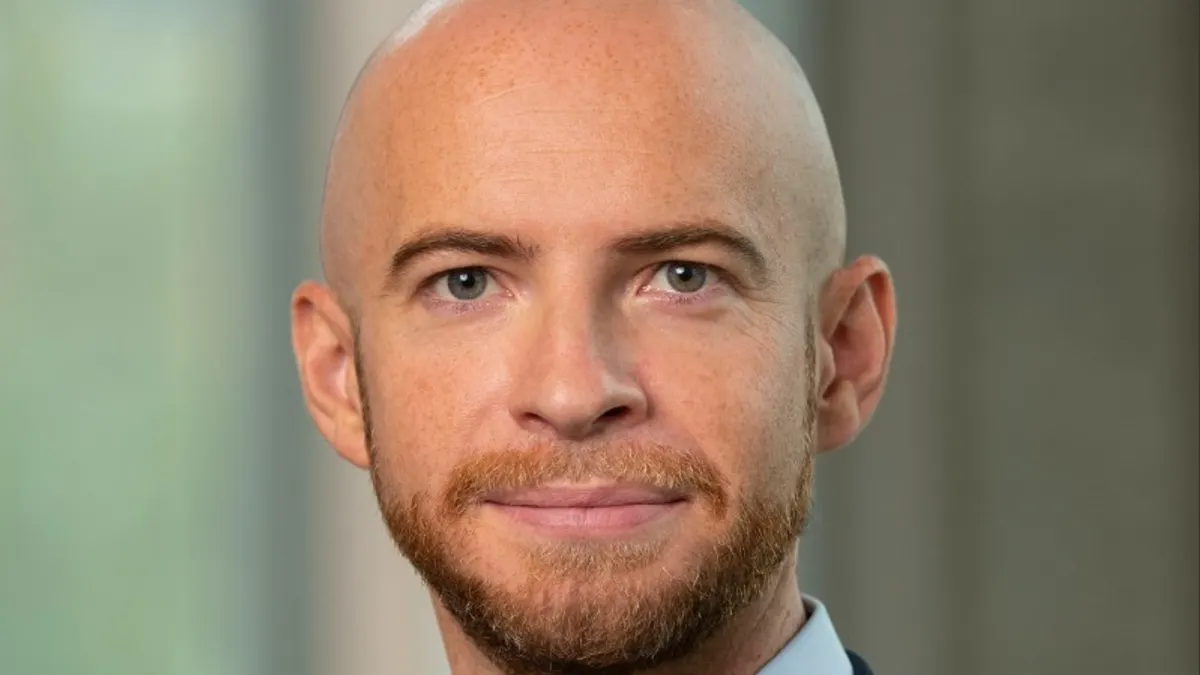When he became a tenured professor at Stanford University, Dr. Amit Etkin felt like he had it made.
“Everything was great from an academic perspective,” Etkin said.
He led a roughly 30-person clinical research lab, and his team’s research in the neuroscience of emotions and clinical disorders like depression was groundbreaking. In fact, he received a 2017 National Institutes of Health Director's Pioneer Award, which according to the NIH, “supports individual scientists of exceptional creativity proposing innovative, high-impact approaches to major challenges.”
“I spent my entire life building to the point of getting a wonderful faculty job at a place at Stanford,” he said. The next logical step was an academic chair position, and he was well on his way.
But in 2019, he walked away from all of that to become the founder and CEO of Alto Neuroscience, which the company said is “pioneering an approach to psychiatric drug development which matches the right patient with the right Alto drug based on AI-derived brain biomarkers.”
“For me to give up a tenured professorship at a place like Stanford, you can imagine, was no easy feat,” he said.
Driven by a desire to make concrete change in patients’ lives, Etkin was eager to push the neuroscience space forward in a new way — despite the uphill battle.
“How do I actually have an impact that changes the trajectory of a field that’s been stagnant for decades?” he asked.
Changing the psychiatric treatment paradigm
Ultimately, Etkin bet on himself and the science he’d been working on for years, which focuses on the “core question” of how and why people differ biologically when it comes to psychiatric treatment outcomes and using biomarker tests to determine which drug is right for each individual patient.
“We're developing drugs for disorders of the brain — psychiatric and neurological — with a precision focus,” he said, adding that he believes that Alto could be positioned to “have the first biomarker driven drug approval in psychiatry.”
Although precision medicine is already changing the way patients are treated in oncology, it’s very different from how psychiatric conditions have historically been developed. Instead of using any kind of precision, psychiatric prescribing has relied on “meager trial and error.”
“The history of psychiatry is that our diagnoses aren't really worth much as descriptor categories that tell us about biology; they're very phenomenological, and we have to get beyond that,” Etkin said.
At Alto, Etkin wants to “try to bend the curve of the repeated failures over decades of work where we've basically taken our diagnoses as the given category and not gotten to the biology of the individual patient.”
Etkin’s work at Stanford took him and his team right to the edge of this goal, but they were hampered by their setting.
“We had done all the work and figured out the kinds of tools, the kinds of analytic approaches that we could take and be able to take it to scale, but in academia you can't really create new treatments,” Etkin said. “It got to the point where we just couldn't grow any bigger and faster in academia.”
Since launching in 2019, Alto has grown into what Etkin called “a mature company” with more than 50 employees and multiple clinical trials from preclinical into phase 2 underway.
“How do I actually have an impact that changes the trajectory of a field that’s been stagnant for decades?”

Dr. Amit Etkin
CEO, Alto Neuroscience
So far, its phase 2a trials have been aimed at identifying which biomarkers will predict treatment outcomes. In 2023, Alto plans to launch phase 2b trials that will use those identified biomarkers to test its drugs in placebo-controlled settings. The company said its trials will be the first to leverage biomarkers for patient selection and efficacy studies in psychiatry.
Alto hopes the trials will produce a readout in 2024 and a potential approval within five years. And although Alto is initially targeting major depressive disorder and then PTSD, it believes its precision approach could “scale broadly” across various neurological conditions.
“We can have more quality control oversight over the biomarkers,” he said.
To aid development, Alto has built tools and custom software to collect clinical data themselves, rather than using a contract research organization. In fact, Etkin said Alto is using a “whole branch of our efforts around decentralized trials” that collects very high-quality data — including EEG data — in patient homes, making their trials better, faster and cheaper.
Finding new footing
Etkin grew up outside of Boston and had the kind of very traditional medical education — MIT, Columbia — that often leads to a long career in East Coast academia. But Etkin ultimately landed in California at Stanford. When asked what brought him out West, his answer came easily and with a dreamy cadence to his voice.
“California dreamin’,” he said simply, which he always shared with his wife.
“I remember very saliently watching the movie Sideways on a very, very cold day in a New York theater,” he says. “It was just, like, a travel ad for California amongst the acting and drama.”
Those California dreams not only drew him to the West Coast but also imbued him with the energy of innovation and risk-taking that’s such an integral part of the state’s culture. It gave him the motivation, excitement, and confidence to make the leap from the relatively cushy world of academia to the decidedly riskier one of biotech startups.
“Moving out to the West Coast actually is what opened my eyes to a lot of this,” he says. “I mean, I have neighbors who literally started companies in their garages.”
The difference between academia and industry is “night and day,” he says for so many reasons: The more generous incentive structure for employees; the ability to think beyond publishing papers and where their next grant will come from; having more sophisticated data analytics than they could achieve in the lab; and being able to think on a much larger scale toward actually getting drugs to patients.
Yet, Etkin not only believes that being a scientist CEO is critical to Alto’s success, but that many other scientists could follow in his footsteps.
“I do think that there are a lot more scientists out there … who have ideas that could lead to really exciting companies who may just be afraid to leave academia,” he said.
He understands that fear, but knows the risk has been worth it.
“To pivot, if you will, takes a certain ability to bet on yourself,” he said. “And that's what I had to learn in the course of it … that at the end of the day, that's what I was doing.”















